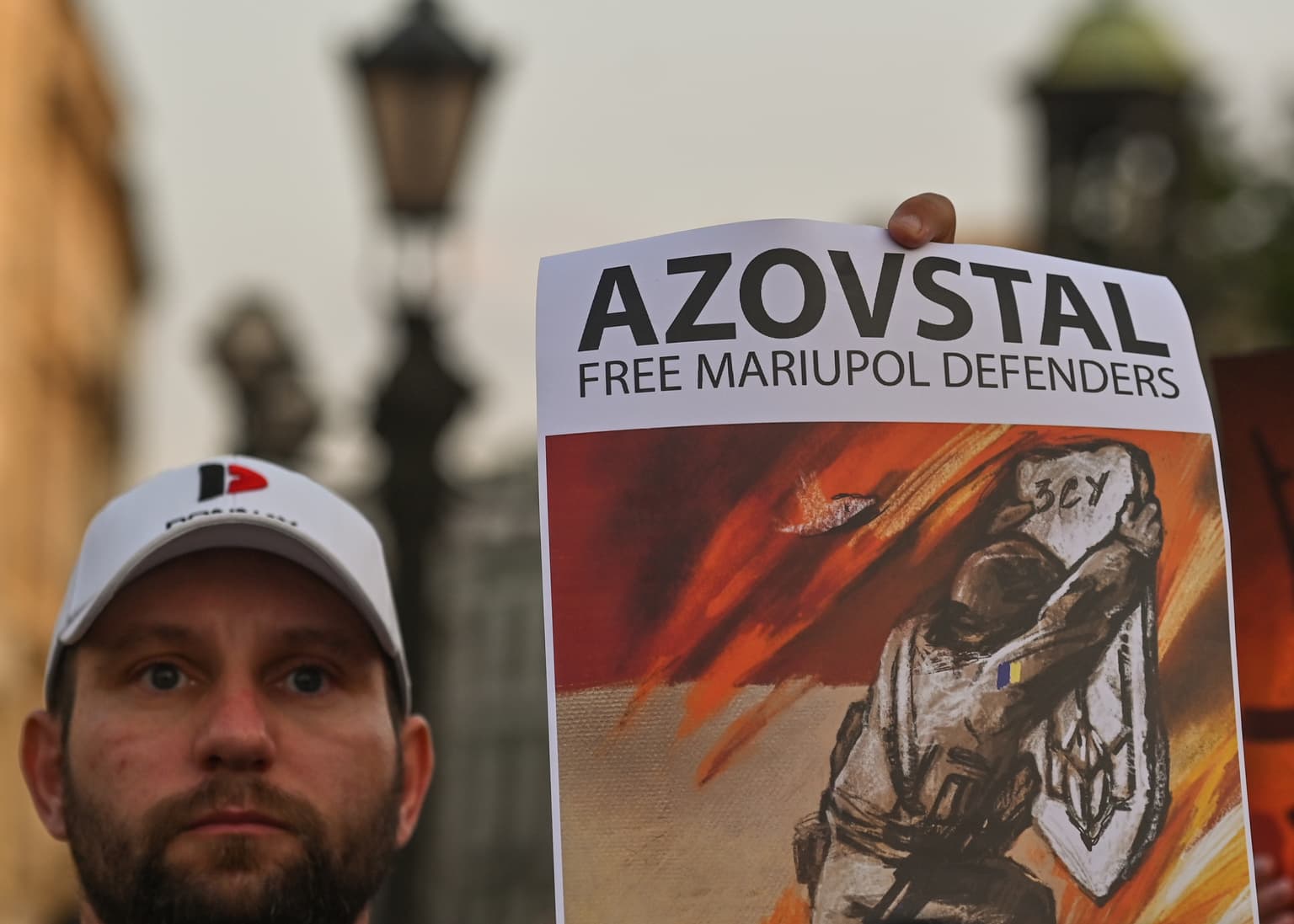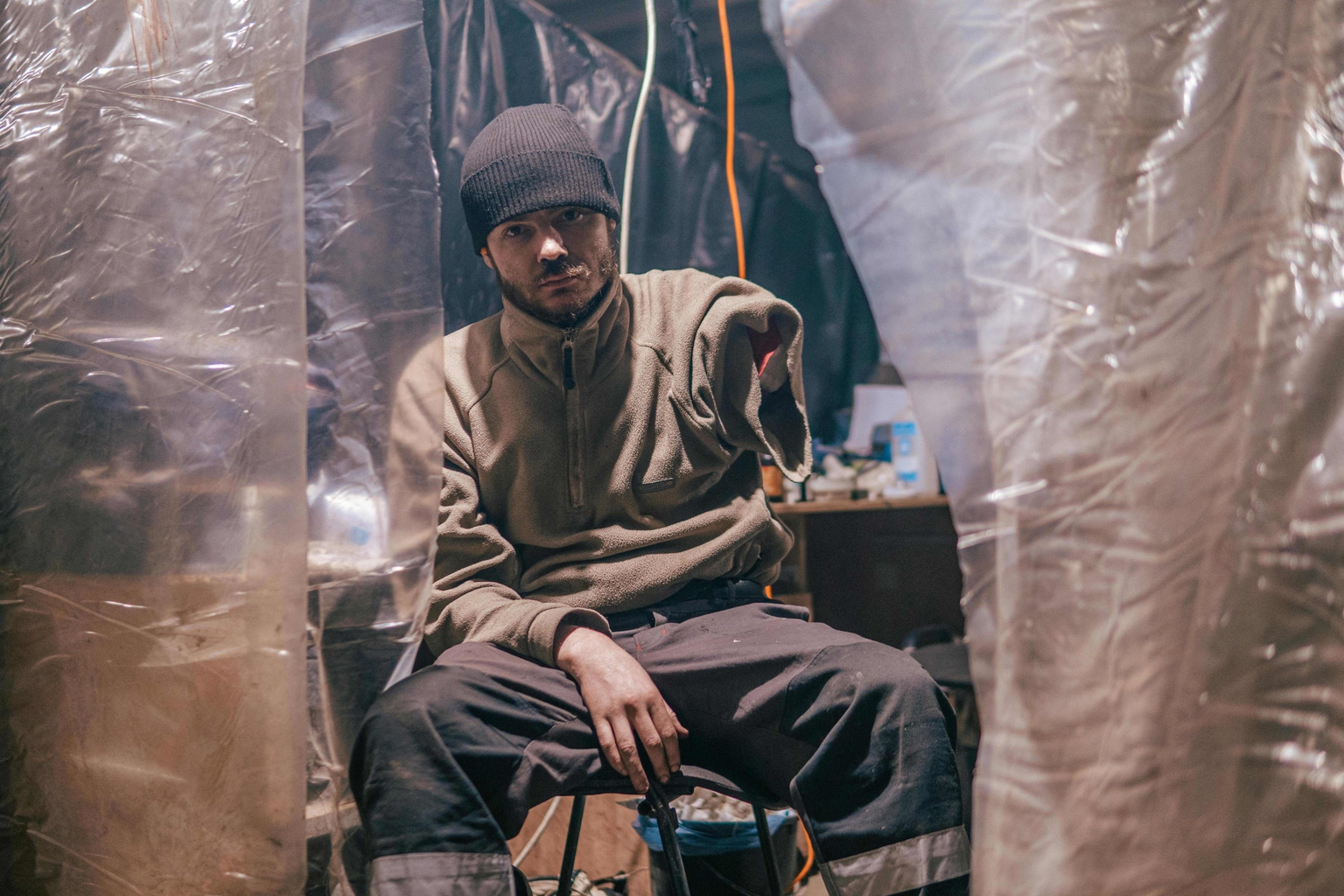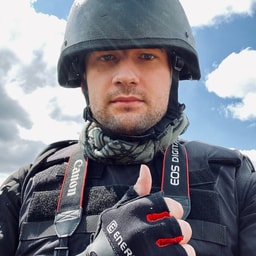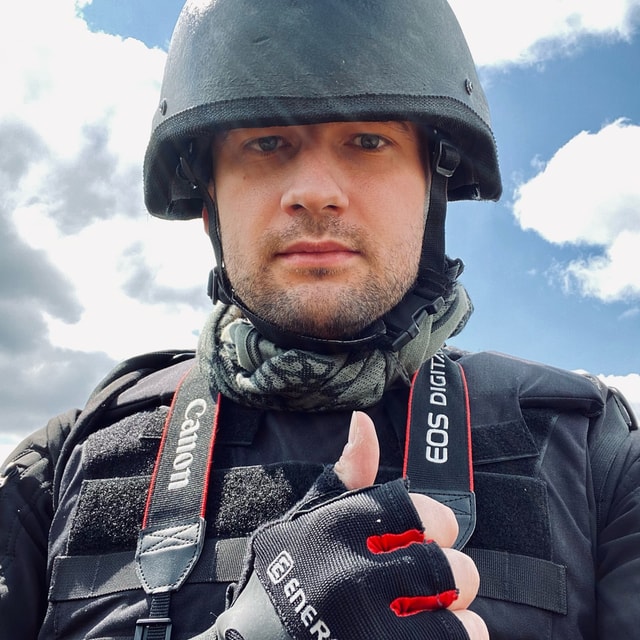Over 50 Ukrainian prisoners of war killed in Russian captivity

More than 50 Ukrainian prisoners of war have reportedly been killed in what is believed to be a Russian attack on a prisoner camp in Russian-occupied Donbas on July 28. This is possibly the worst crime against captive combatants since Russia launched its full-scale war.
"It was a deliberate Russian war crime, a deliberate mass murder of Ukrainian prisoners of war," said President Volodymyr Zelensky.
The attacked prisoner camp was near the town of Olenivka, some 20 kilometers south of Donetsk, the main stronghold of Russian-controlled militants since 2014. Many prisoners at the site were soldiers who took part in the intense fighting at Azovstal, a large metal plant and the last Ukrainian-held area in Mariupol.
The fight ended in May with Ukrainian command ordering the garrison to surrender in order to save their lives.
"When the defenders of Azovstal left the plant, the United Nations and the International Committee of the Red Cross acted as guarantors of the life and health of our soldiers," Zelensky said. The president called on the UN and the International Committee of the Red Cross to visit the site and investigate the matter.
Ukraine repeatedly stated that it intended to get all the captured Azovstal defenders back home via prisoner swaps with Russia.
"Russia has proven with numerous terrorist attacks that it is the biggest source of terrorism in today's world," Zelensky said, adding that the international community must recognize Russia as a state sponsor of terrorism.
Russian state-controlled media published a video supposedly showing a heavily ruined and burnt prison barrack, with scores of charred bodies in and around it. Russia claimed the attack took the lives of 53 Ukrainian prisoners and injured 75.
Russian-controlled militants in control of the area immediately accused Ukraine of an attack against its own combatants in captivity, saying the site had been hit by an American-provided high-precision HIMARS rocket system. The Ukrainian military denied any role in the incident, saying Russia killed the Ukrainian prisoners in an "intentional artillery strike."
Attack on Olenivka
Early on July 29, Russian media published a video showing a heavily ruined and burnt prison barrack, supposedly from the prison outside Olenivka, with scores of charred bodies in and around it.
The Olenivska prison, as it is known in eastern Ukraine, is located some three kilometers east of the town Olenivka, in an isolated area. Since the region fell under Russian occupation in 2014, it had also been used as an internment camp.
Since May, some of the nearly 2,000 Ukrainian combatants who surrendered under order at the Azovstal plant following a months-long battle were also held in Olenivka. Many of them belong to the Azov Regiment, which played an important role in the Battle of Mariupol. Russia and Russian-led militants repeatedly vowed to execute the Azov combatants.
After the destruction of the Olenivka prison, the Russian embassy in the U.K. tweeted that Ukrainian prisoners from the Azov Regiment "deserved death," even as Russia was accusing Ukraine of the attack.
The fact that Ukrainian prisoners were held in Olenivka was well-known. In early June, a popular Russian pro-government Telegram channel, trying to discredit the talks about the shipment of long-range artillery to Ukraine, claimed that Ukraine was considering using the Western-provided artillery to shoot at the camp to frame Russia.
"Russian occupants were pursuing criminal ends: to accuse Ukraine of committing war crimes. And also to conceal torture of detainees and executions carried out by authorities under Russian military command," Ukraine's General Staff of the Armed Forces said on July 29.
Read also: Azovstal garrison: ‘We’ll keep fighting as long as we’re alive’
Mykhailo Podolyak, an adviser to President Volodymyr Zelensky’s office, said that Russia’s version of the events makes no sense because there were no potential military targets in the area.
"In Olenivka, there are no operational military targets for Ukraine," Podolyak said on July 29.
Over the last month and a half, Ukraine has been waging a campaign to destroy key Russian military facilities in Ukraine's occupied east and south with the use of high-precision, U.S.-provided HIMARS rocket systems.
According to Ukraine's Defense Ministry, nearly 50 Russian ammunition dumps have been destroyed over the last few weeks, hindering Russia’s offensive potential against Ukraine. HIMARS strikes against key bridges and local lines of communication have also severely jeopardized Russian logistics in the southern Kherson Oblast.
Wagner Group trace, intercepted call
Ukraine’s Defense Ministry's Intelligence Directorate also called the incident “an act of terrorism” committed by Russian forces.
According to the Intelligence Directorate, the attack was committed by the Wagner Group, the notorious Kremlin-linked mercenary army, under a direct order from Yevgeniy Prigozhyn, the group’s alleged head and close ally of Russian President Vladimir Putin.
The attack was carried out without the consent of Russia’s Defense Ministry leadership, the Intelligence Directorate said.
Ukraine’s Security Service (SBU) said that the destruction of the prisoner camp was likely caused by an internal explosion, not an attack.
The SBU published an audio recording of an allegedly intercepted phone conversation between two people the Service alleged are Russian-backed militants discussing the incident.
Read also: 'Welcome to hell': Ukrainian airborne fighting Russia in Donbas woods
The conversation suggests that militant forces had deployed BM-21 Grad rocket launchers close to the Olenivka jail and delivered a strike upon Ukrainian-controlled territory, apparently trying to provoke a response. The attack was not returned by the Ukrainian military, according to the SBU.
No one at the scene heard or saw any signs of an incoming rocket attack, according to the conversation.
“As judged from video footage available online, the glass in some of the facility’s windows is intact,” the SBU said. “This means that the explosion’s epicenter was located inside the ruined building so that the walls absorbed the blast wave and protected the buildings nearby.”
Podolyak added that the attack was a "cynical, thought-out false flag operation."
"We know that several days before the crime, inmates were deliberately relocated to the barrack that was later hit," Podolyak said.

Russian war crimes
The killing of Ukrainian prisoners of war comes immediately after another horrifying incident involving a captive Ukrainian.
Just the day before, on July 28, an extremely graphic video went viral on the web, allegedly showing a Russian serviceman torturing and then castrating a Ukrainian prisoner of war with a cutter knife.
The video triggered a stir in the media and prompted many, including the Bellingcat investigative group, to try and identify the Russian torturer and the incident's location.
Dmytro Kuleba, Ukraine's foreign minister, called the Olenivka prison attack "another petrifying war crime" and called on nations to "strongly condemn this brutal violation of international humanitarian law and recognize Russia as a terrorist state."
Meanwhile, Andriy Biletskiy, a politician and former commander of the Azov Regiment, also confirmed the killing of the imprisoned Azov members, who he said had been singled out and relocated to a separate building at the Olenivka jail prior to the explosion.
In response to the suspected mass murder, Biletskiy on July 29 announced “a manhunt” for all individuals behind the attack.
"Every perpetrator and every organizer, regardless of their rank and whereabouts, will be held accountable," he said. "No matter where you hide, you will be found and exterminated."
Igal Levin, an Israeli-Ukrainian defense expert, believes the Russian goal behind the latest incidents could be fostering hatred and anger among the Ukrainian military against potential Russian prisoners of war.
"(Russians) are experiencing a complicated situation in Kherson," the expert said. "And their military grouping under blockade threat could potentially surrender. Russia is trying hard to anger (Ukrainian) soldiers and intimidate their own soldiers so that the former would not take prisoners and the latter would not even think of surrendering.”
“Again, this is not something new,” he added. “Russians have done it during their punitive operations in Ichkeriya (Chechnya)."
__________________










